Trolley: Episodes 15-16 (Final)
by missvictrix
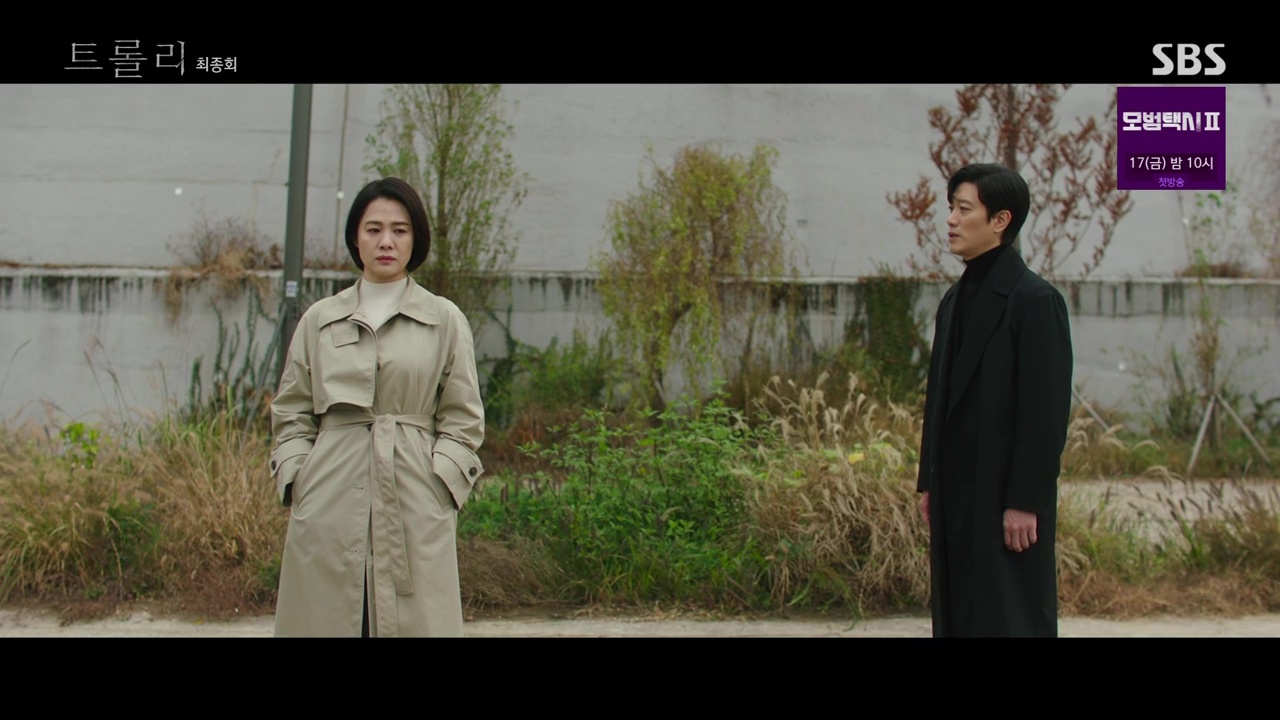
Phew, what a ride. Trolley had much to accomplish in its finale week, from delivering final twists, to elucidating the final trolley problem, to taking our hearts and crushing them under said trolley.
EPISODES 15-16
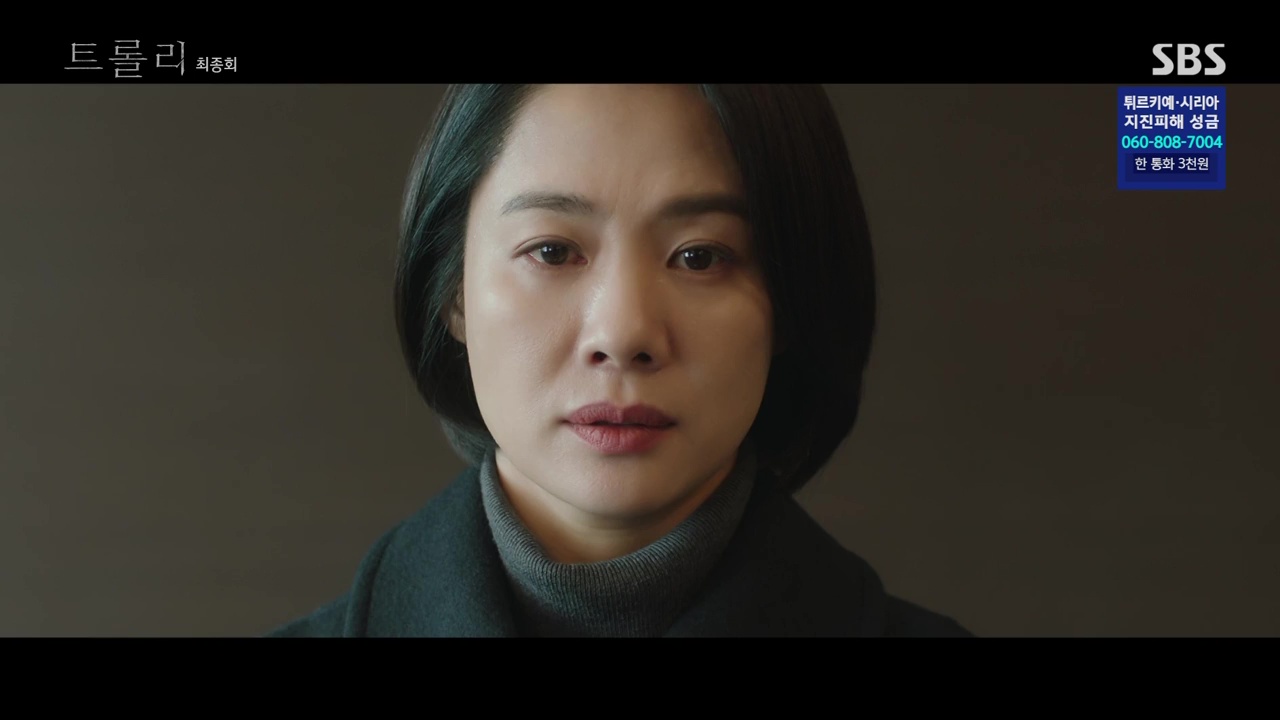
After a few months of watching a steady string of dramas that let me down with their conclusions, the finale week of Trolley reminded me what it’s like to watch a drama that satisfies. Trolley delivers its ending beautifully, and somehow manages to catch a glimmer of light in what I’m pretty much ready to call a horror story. There’s no serial killings or bodies hanging in meat lockers — but the horror of gut-wrenching betrayal and lies is a horror that goes far deeper.
I think we can all agree when we first tuned into this drama, it was with absolutely no idea of how many dark twists it would take, or that it would end with this final lurch of horrible actions. I have so many thoughts about the drama’s ending, and how it tied its web of interwoven moral dilemmas into a final crowning dilemma, but first: that terrible cliffhanger.
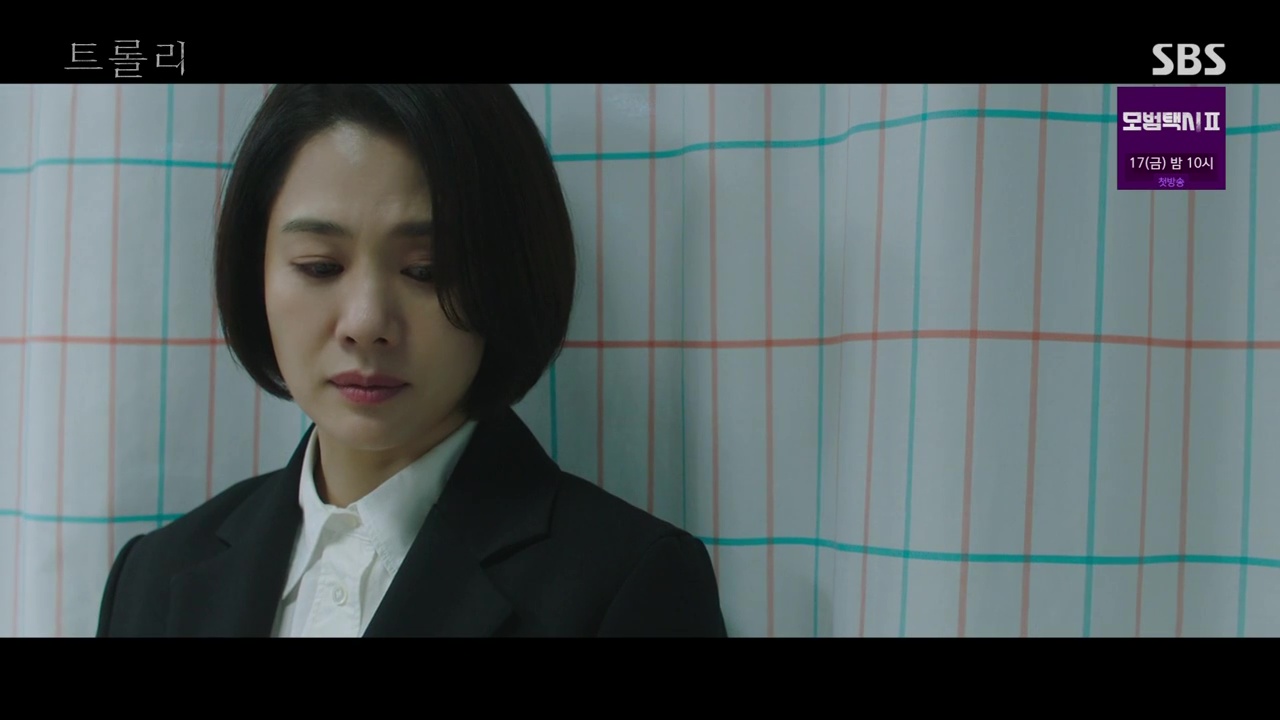
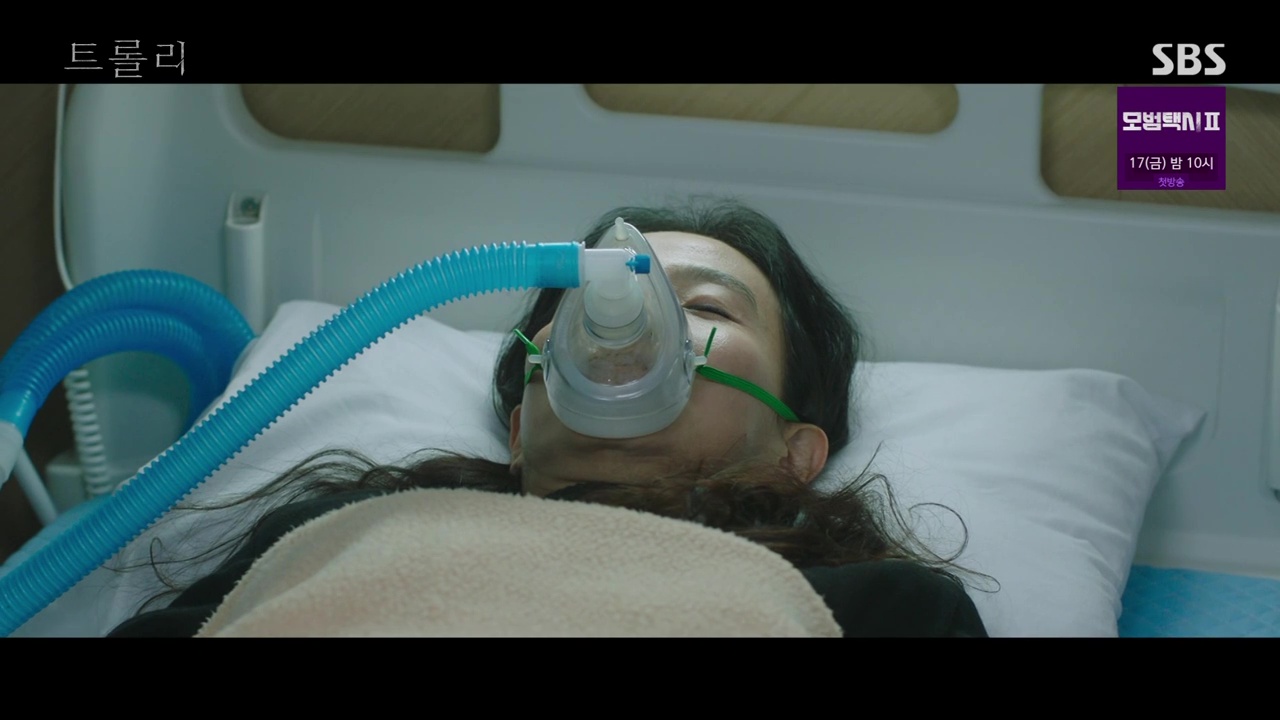
We pick up with Hye-joo’s TV appearance, setting the record straight around the assault in her past, and confirming everything that Joong-do has said previously. She is towing the party line, looking at the good the Namgoong Sol law will do, but it’s clear she’s not at peace with what she’s done.
At the moment, Hye-joo thinks she’s covering up her husband’s affair, and though we can imagine how she feels, she still goes running to the hospital when she gets a call that Yeo-jin has attempted suicide. She survives, and Hye-joo shoos off Joong-do so she can stay with her. There’s a poetic mixture of love and resentment in her eyes, but it’s about to shift when she hears the news we did in our cliffhanger.
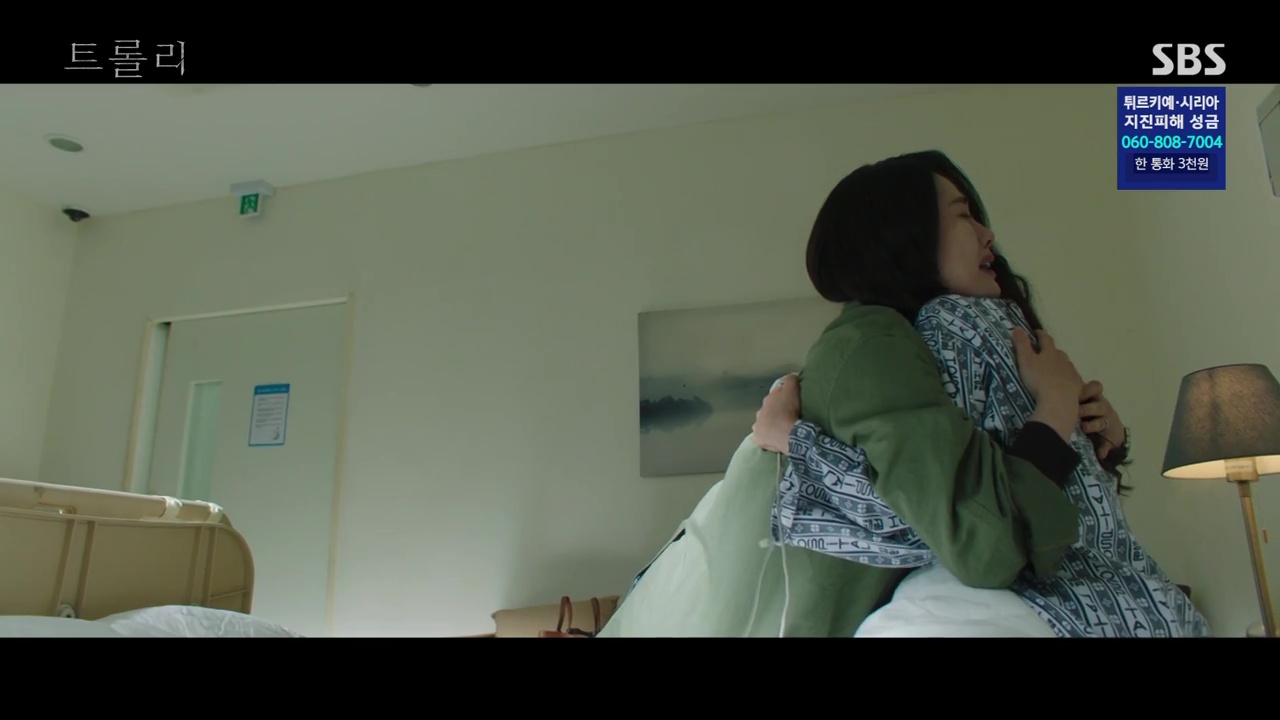
Yeo-jin wakes up and decides to tell Hye-joo that the affair was a lie: she was actually raped by Joong-do five years ago. Hye-joo, of course, has a hard time fitting this in her brain and denies it at first. But, as she weighs the possibility against what she knows of Yeo-jin and the lies she’s learned Joong-do is capable of, she soon comes to accept it. We see a flashback of Yeo-jin’s PTSD around Joong-do’s study where the incident occurred, and — gosh, it hurts — if anyone understands that kind of trauma, it is Hye-joo.
And so, these two women wind up comforting each other in this horrible mess they’ve found themselves in, and it’s hard to say who is more miserable and apologetic. The drama also fleshed out the conversation between Joong-do and Yeo-jin that Ji-hoon overheard, as well as the previous scene where Yeo-jin entered the study for the first time since the assault. As expected, with new context, both conversations read completely differently. It’s clear there was no affair.
So, while we can be relieved about the lack of adultery (and shame on the drama for that completely fictional moment of desirous gazes between Joong-do and Yeo-jin), where we land is far worse. It’s nothing short of sickening to imagine what happened to Yeo-jin; I can’t understand how that happened in that household and honestly I don’t want to.
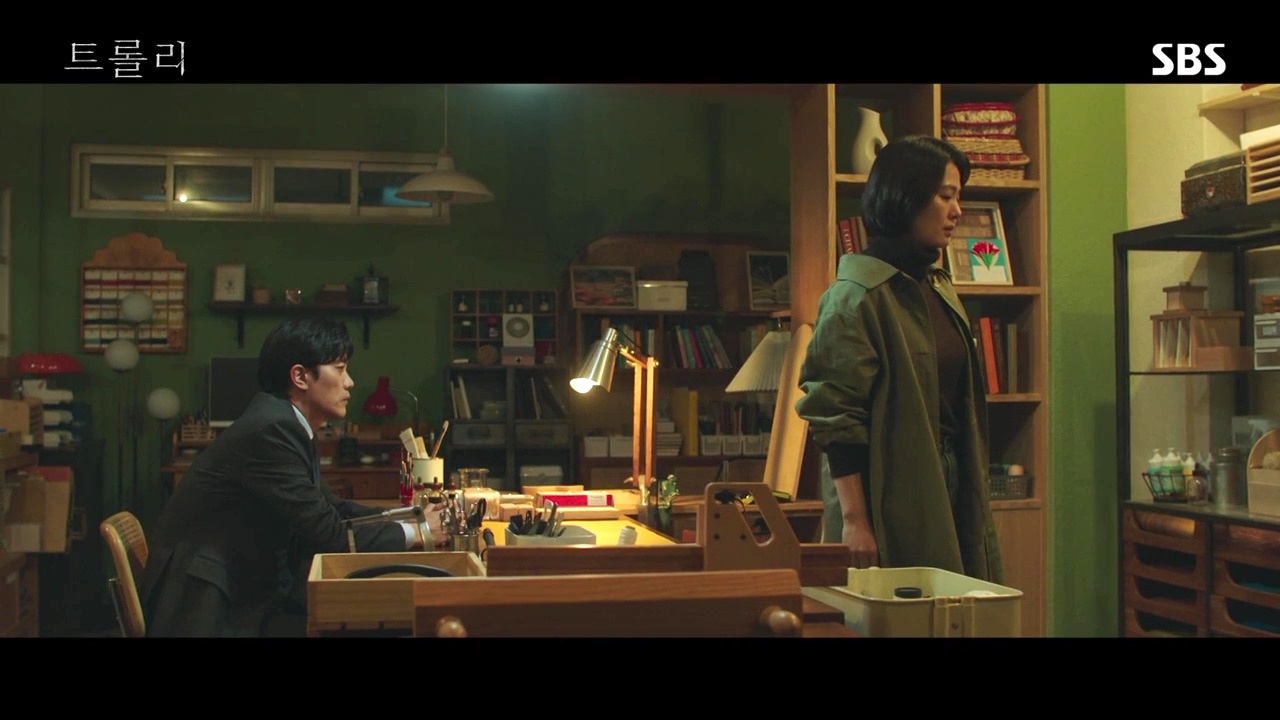
Here we quick-cut to Hye-joo and Joong-do in her studio in maybe the fifth or sixth scene where Hye-joo confronts her husband on a lie and he has to own up to it. Each time this has been dreadful, but this one is just unfathomable. Joong-do insists it was “a mistake,” and Hye-joo says what we are all thinking: How can you call that a mistake? How could you do something so heinous and preach Namgoong Sol law?
Joong-do’s perspective is that he was so doggedly pursuing the Namgoong Sol law — even falsely incriminating his own son — to atone for what he had done. He even insists that Hye-joo not apply for divorce until the law has had a chance to pass.
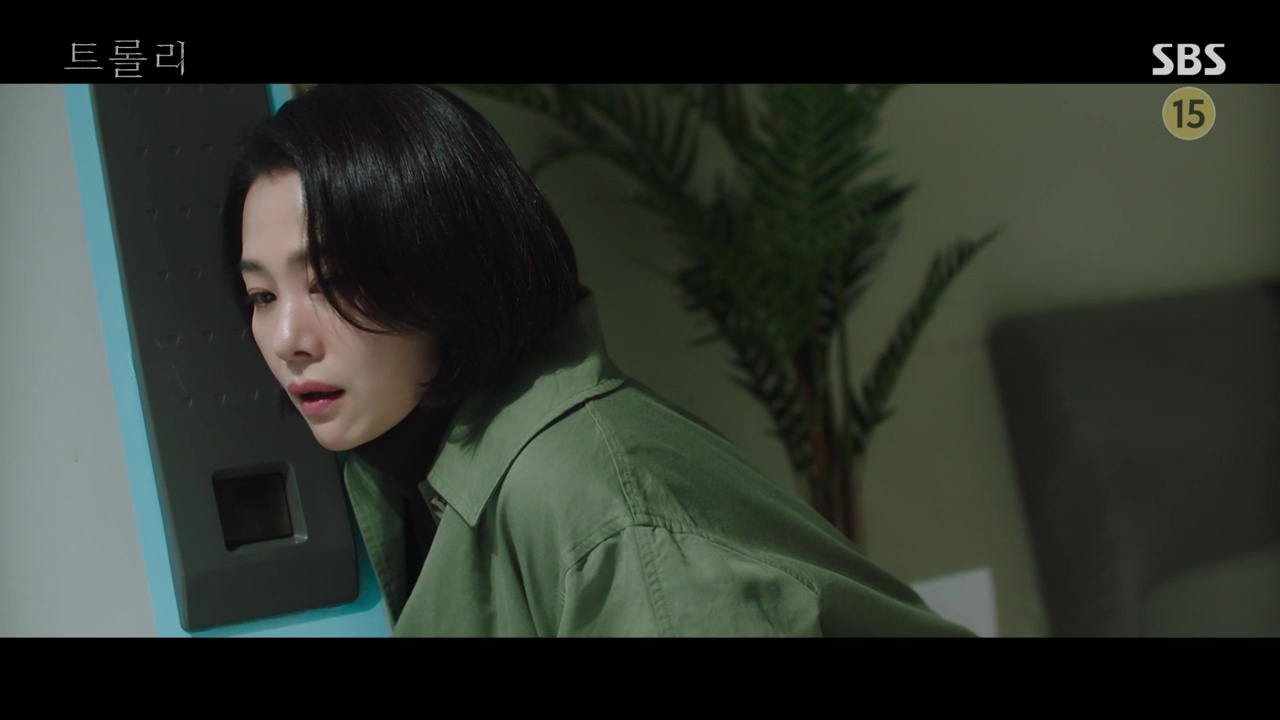
It’s nearly impossible to imagine what our heroine is going through right now. After being steadily broken in each chapter of our story, she has quite literally lost everything. Her innocent son is dead, and has been painted as a criminal. The trauma from her past that she was hiding has been exposed to the world. The husband that was her safe haven for so many years has turned out to be exactly the sort of evil that she thought she was running from. It’s diabolical!
However, what elevates all these tragic and depressing circumstances is the fact that instead of reacting, and reacting only, it is time for Hye-joo to step up. And it’s deliciously satisfying to see her go from the passive woman we’ve seen, to a woman who decides to take action.
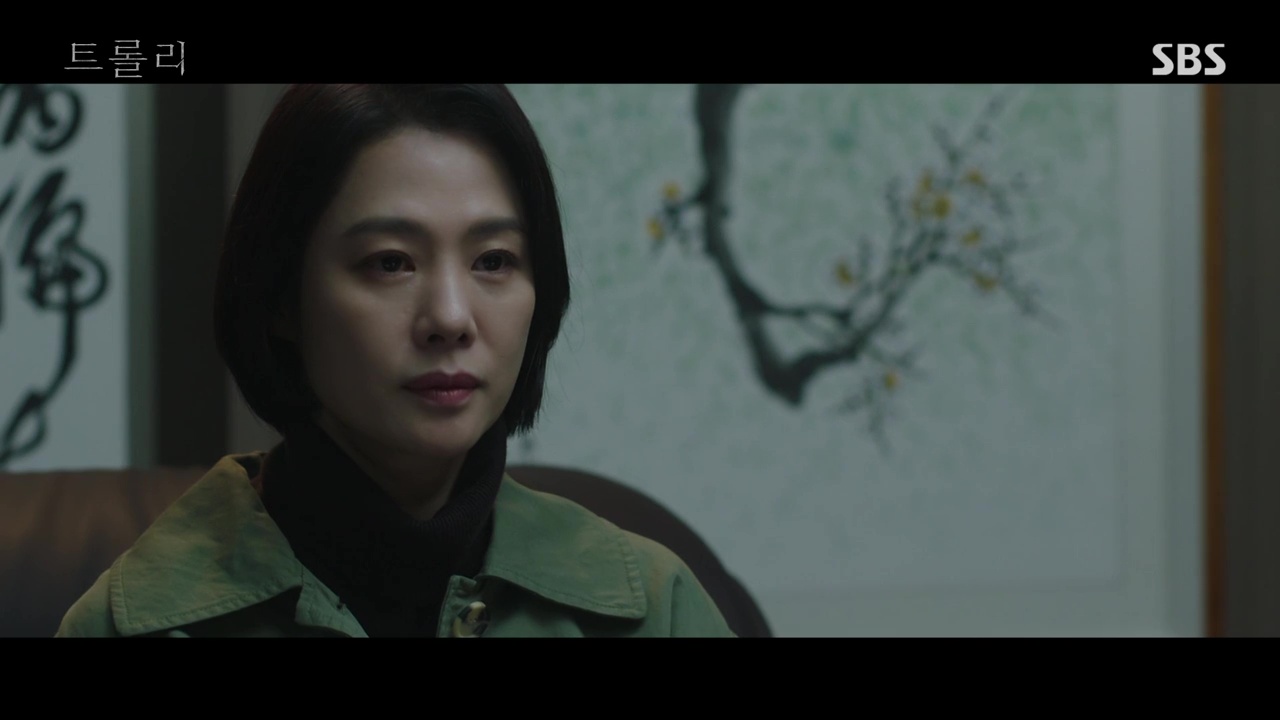
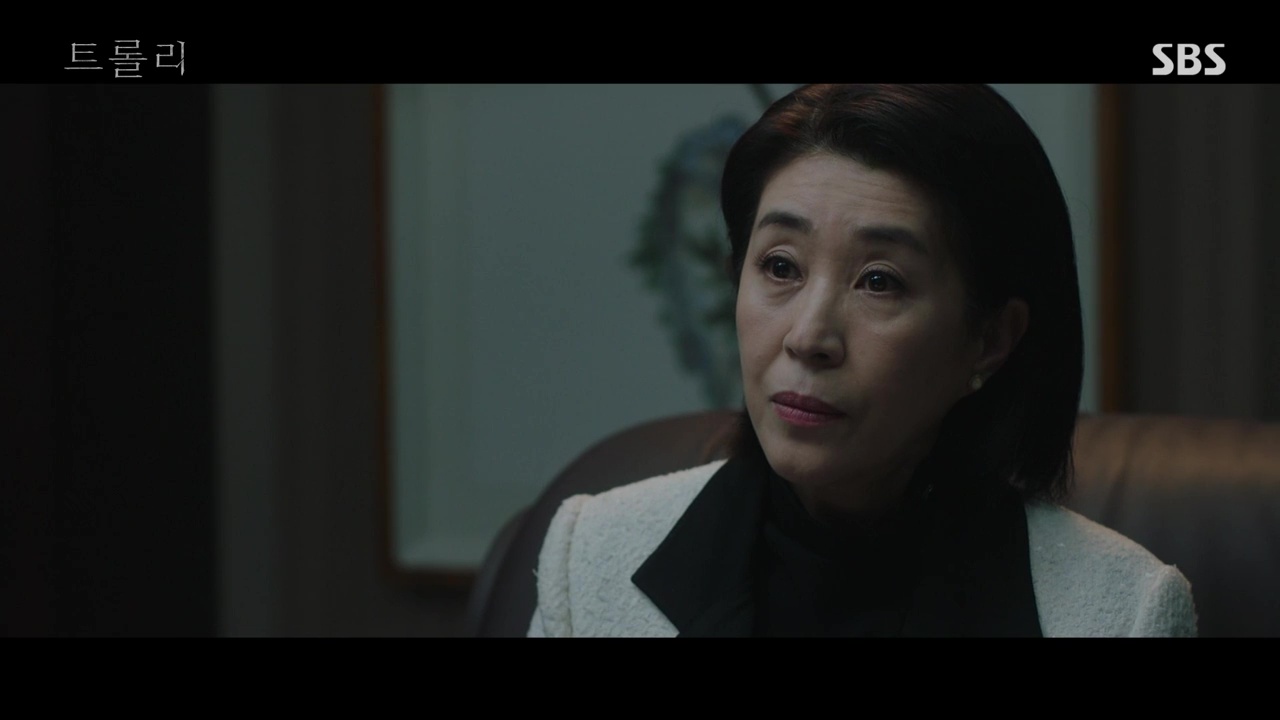
Her first stop is Chairwoman Woo (these two actresses together in such a weighty scene was so enjoyable to watch!). Hye-joo tells the truth of the assault to the Chairwoman and they have a rich and yet understated conversation. Chairwoman Woo paints a very clear picture of what’s at stake — telling the truth about this one incident, or choosing the greater good that the Namgoong Sol law will accomplish — but then she leaves the decision in Hye-joo’s hands.
There’s been a lot of discussion around the drama’s use of the trolley dilemma and how accurate (or inaccurate) it was, but I found this final lineup, in a string of moral dilemma lineups, to be quite poignant. I love it because it brings our heroine’s story full circle, and in the end there is no one better to make this decision, since she’s a victim herself. And so the question becomes: let this current victim (Yeo-jin) suffer, or expose the truth and essentially let future victims suffer.
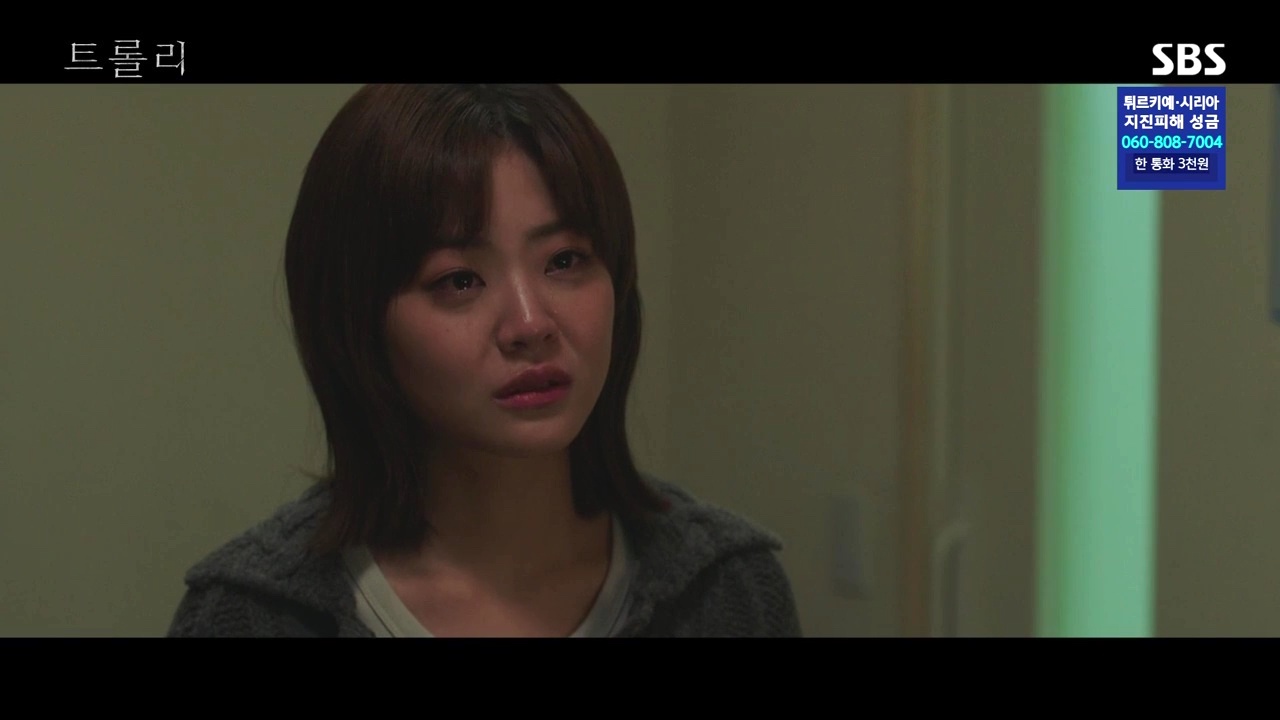
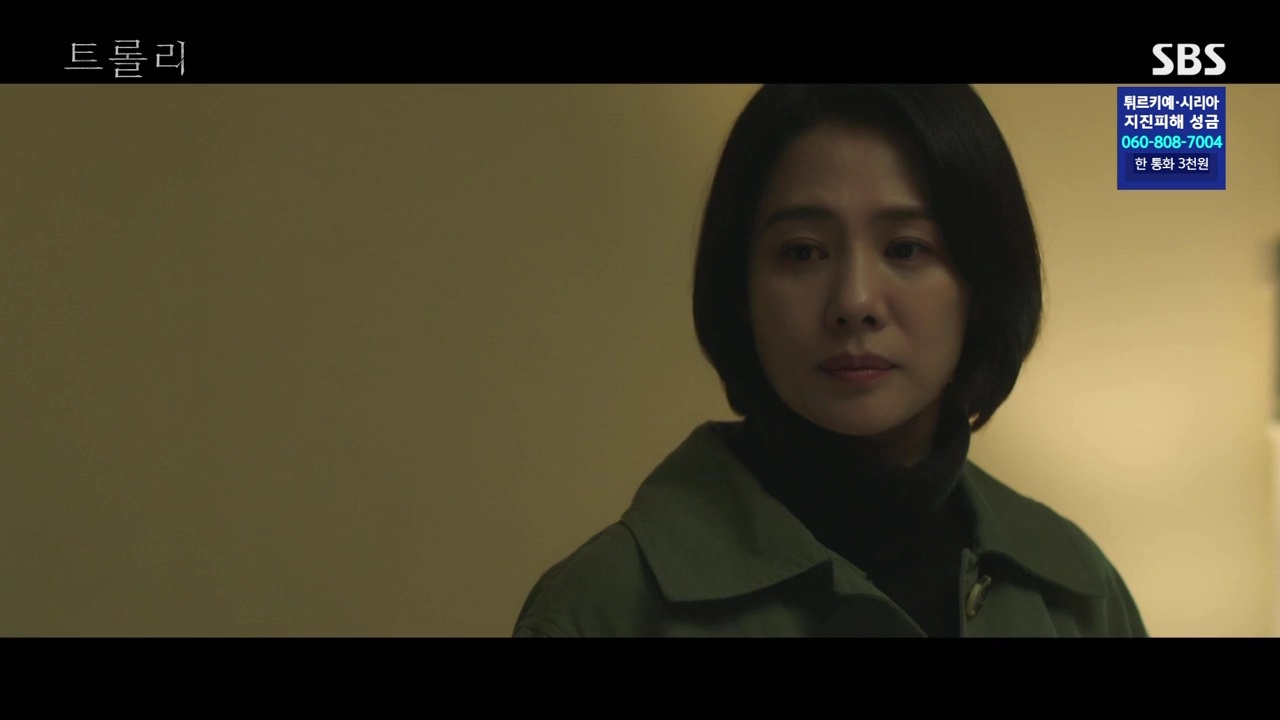
While Hye-joo is caught in her dilemma, one of the voices that impacts her is Soo-bin’s. The character who started out as sulky and opaque has, in the end, become the moral compass of the story. She cries openly to Hye-joo that what she did at the press conference was wrong — essentially the perspective that challenges the good that can happen (from the passing of the new law) when so much pain and suffering and deceit are at the root of it. There’s a beautiful scene when the morning sun floods into Yeo-jin’s hospital room, and by the resolve we see on Hye-joo’s face, we know she’s decided what she needs to do.
This means it’s time for a second press conference, and this one is even harder than the first. Hye-joo refutes every lie from the previous interview, and then accuses her own husband of the sexual assault five years ago. Everyone watches aghast, from Ki-young in his golf HQ, to Seung-hee and her mother, to all of Joong-do’s (totally shellshocked) staffers.
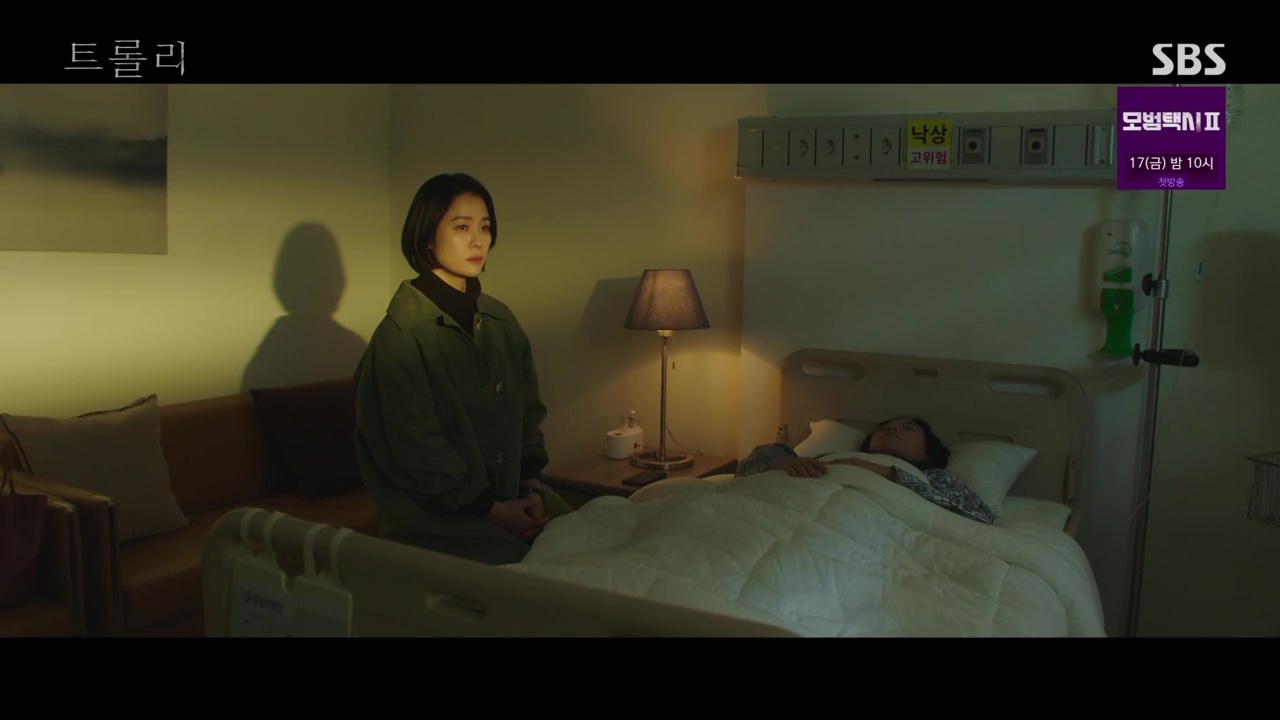
And then there’s Joong-do. Like a faithful dog, Woo-jae tells him what’s happening and advises him to the end, spinning every story they can for him to keep his seat. But Woo-jae’s scheming is falling on deaf ears; Joong-do looks utterly broken.
Woo-jae wants to secret him away for a bit — worried that he’ll go to the press and admit to everything — but instead Joong-do steals his car and drives off to Sokcho to put an end to his life. Hye-joo guesses where he’s headed and when she finally spots him in the ocean, she literally flails after him to keep him from drowning. This scene is so dramatic and emotional it defies words.
When the two are back on shore, Hye-joo sputters that he’s a coward, and Joong-do buckles under the shame of his actions. She tells him he must live as his punishment, and I wonder if he realizes that he’s doing exactly the thing he’s been trying to prevent other assailants from doing. Either way, this scene is just galling.
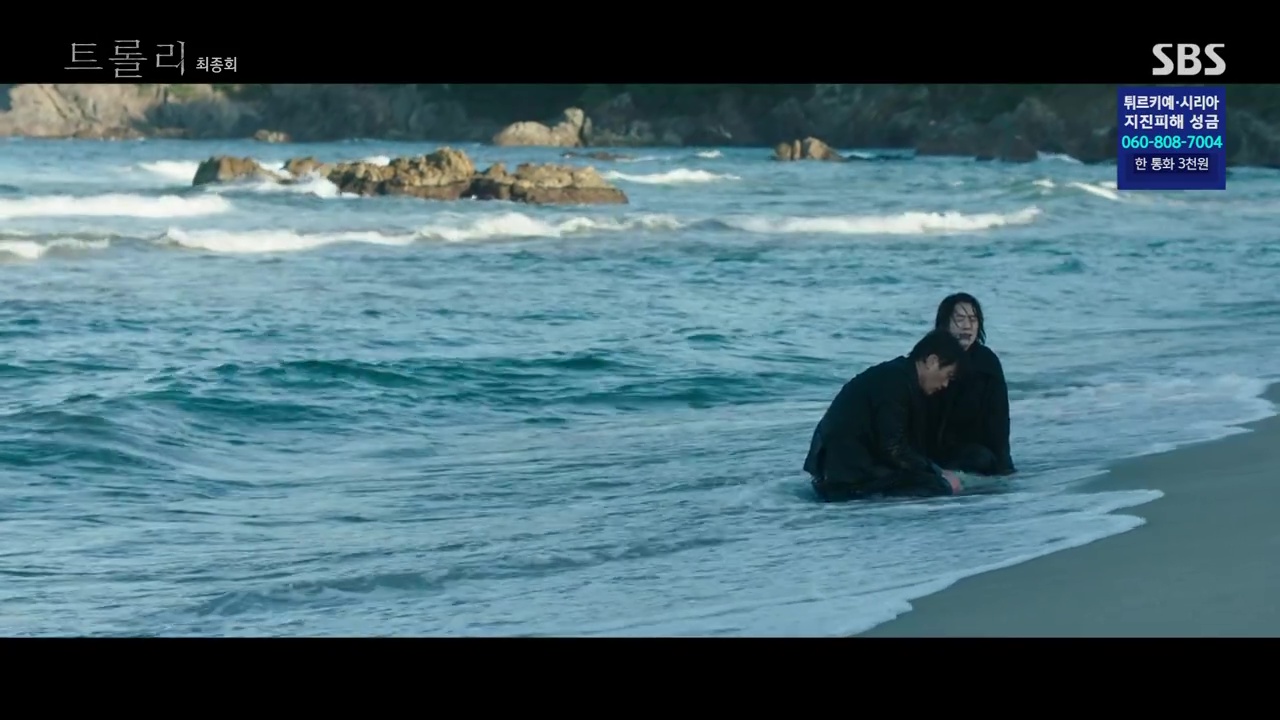
In the end, Joong-do takes his shame and his punishment. He admits to the assault, and when Hye-joo visits him with divorce papers five months later in prison, he seems utterly broken and says he will not appeal whatever sentence he gets. Hye-joo leaves him the little school book they’d looked at previously — all the dreams he’d had as a child of making the world a better place. Ouch.
But the poignancy of this story isn’t in the hypocrisy and subsequent punishment of Joong-do — it’s in the courage we see develop in Hye-joo. This final crisis takes her from the wounded bird hiding under the wing of her powerful husband, to a woman who finds her inner strength, and whose very vulnerability becomes her weapon.
And so, Hye-joo is able to do the unthinkable, like tell her precious daughter the truth about her father, tell the truth to the world, shoulder the humiliation — and all of those hard things — because she knows she’s doing what is right.
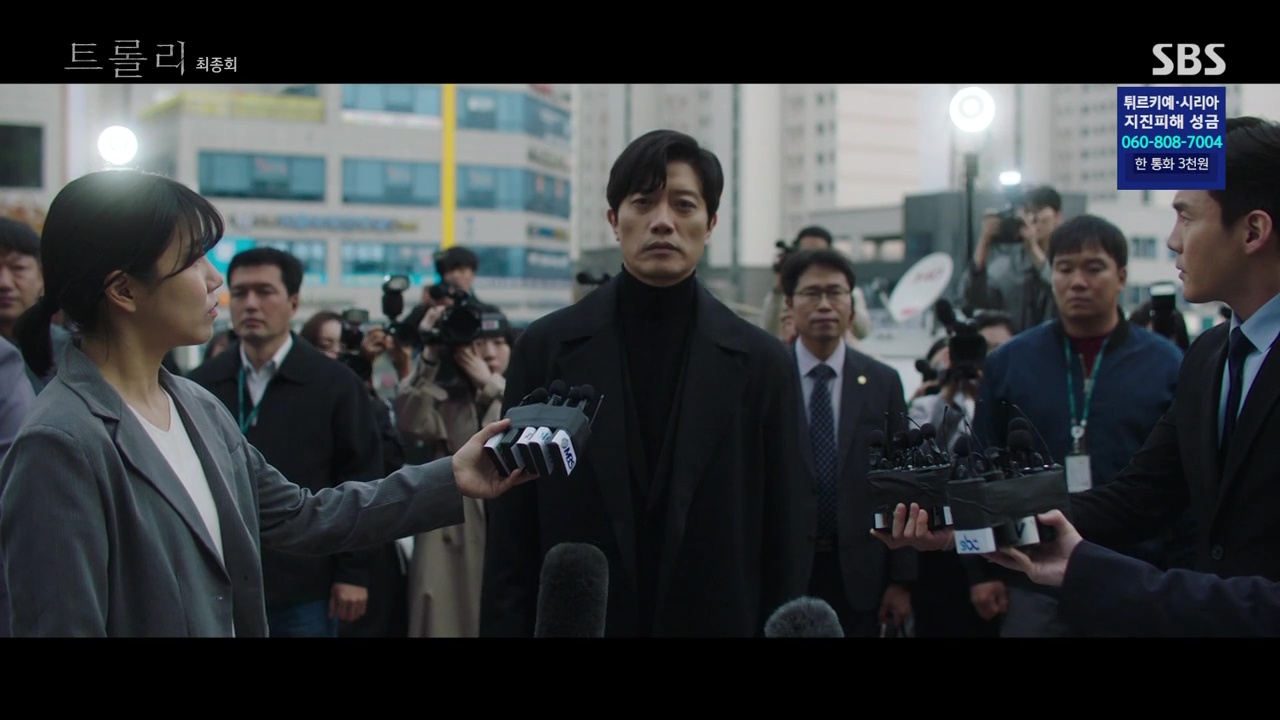
As Hye-joo tells Joong-do, he had make plans to secretly atone for his crime, but he had left the actual victim out of those plans entirely. And it’s a beautiful moment when Hye-joo looks at Yeo-jin and understands that having this one woman suffer in silence is not the right way to win anything. In the end, Hye-joo won’t let the trolley crush Yeo-jin to save future victims. Instead, she learns that having the courage to tell the truth, and bringing righteousness to the present, is the best way to make a brighter future.
I love this as our ending message, not only because it answered the construct of the drama, but because it brought an end to our heroine’s trauma: rather than hiding and covering it up, freedom comes when the truth is brought to light. (And in a way, the drama even takes that idea of light quite literally — we have so many sun-drenched rooms and bright sheets of clean white paper in these last scenes, signifying the power of light, truth, new beginnings, etc.)
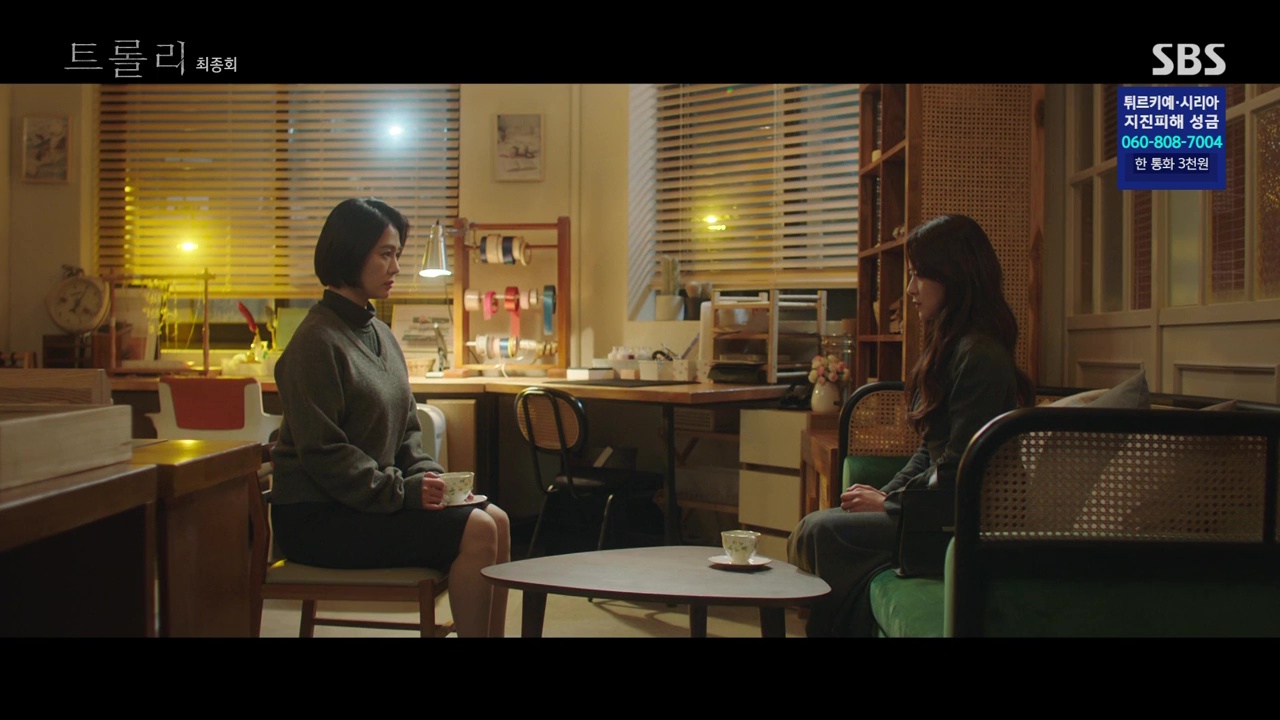
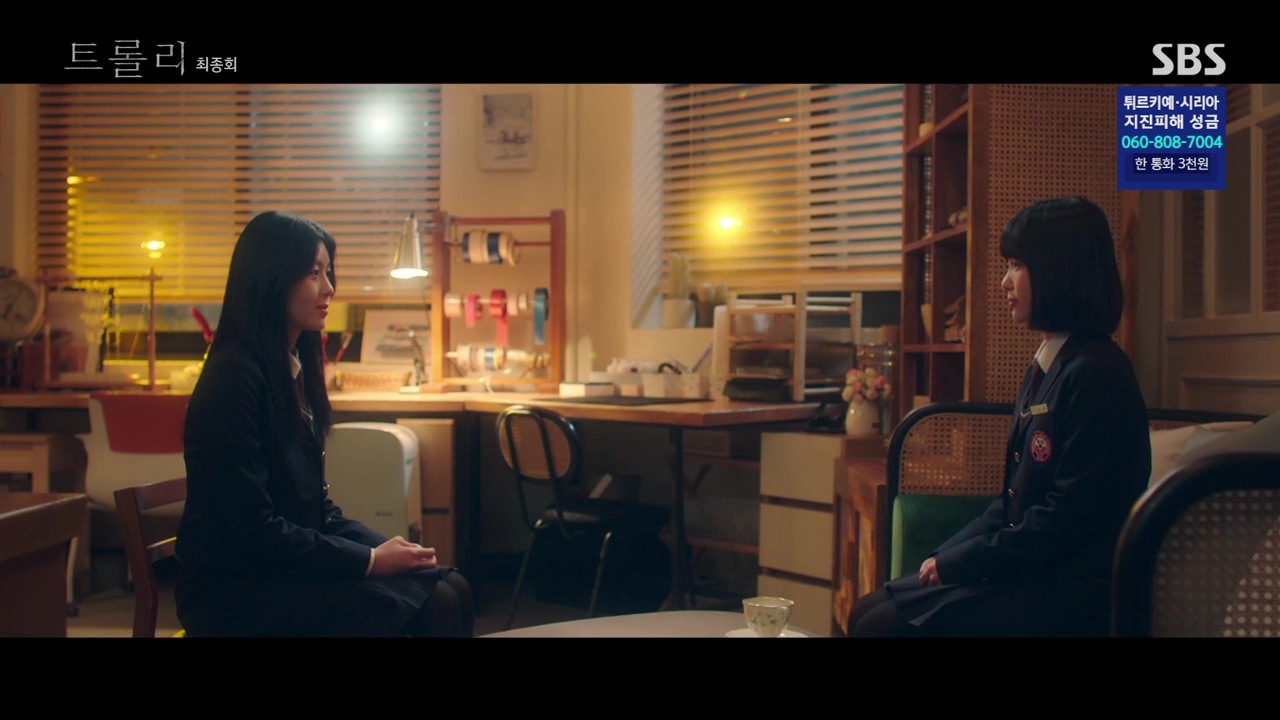
Trolley was such a strong drama overall — and covered so much ground in its final few episodes — that I want to go easy on it with my criticisms. That being said, the final few episodes were quite choppy, whereas earlier the drama took its time setting up each meaningful scene. It’s almost as if the drama needed an extra episode (a statement I don’t make lightly) to give the story enough space. They excelled at this earlier, so I won’t be too hard on the pacing of the concluding episodes, but I do think a little more time spent with this final (horrifying) arc with Joong-do would have helped. We hardly have time to process and fully digest what he’s been hiding, when the punishment is already delivered. Not that I want to spend any more time thinking about it, but I do feel this character deserved a bit more than he got, because in a way, his story is the deepest tragedy here.
The same goes for Seung-hee and her mother. For driving so much of the plot and being such fearsome antagonists, this was also wrapped up quickly. But again, this felt more like a screen time issue than a writing issue — because having Seung-hee apologize to Hye-joo and see them sitting there as girls facing each other… *tears* (Dramas must have cracked my code and know that anytime they do this character replacement motif to signify deep closure, it goes right to my heart.)
Despite the heinous things we learned that Joong-do was capable of, and then thankless psychotic lies that Seung-hee’s mother made no apologies for, I actually think that Woo-jae was our most unconscionable character. In a way, he represents the true foil for our heroine. Woo-jae believed so much in the “greater good” that Joong-do could accomplish that he was willing to hide rape, and even let an innocent boy drown in the name of political change — and without more than a flicker of remorse. Hye-joo, on the other hand, decided that if we can’t bring that “good” to the people that are in our lives right now, then the broader idea of good is basically useless. And I guess the trolley problem is solved in my book, because I agree with her.
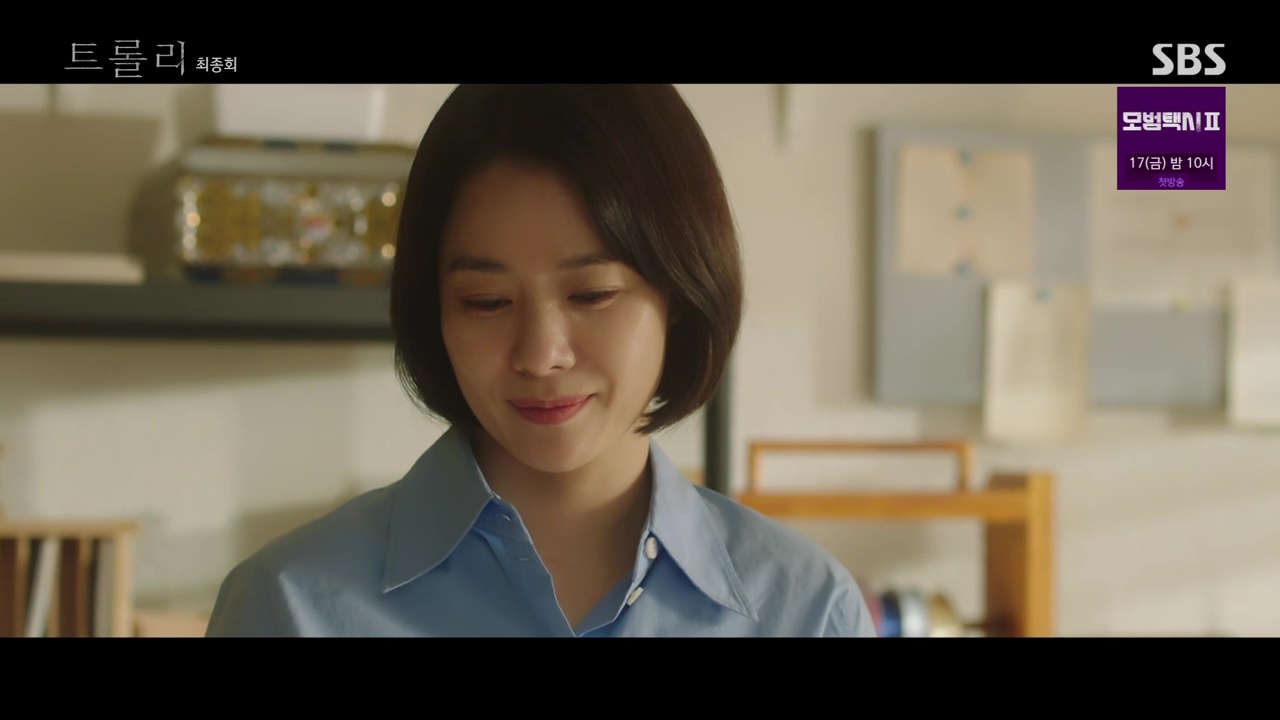
RELATED POSTS
Trolley: Episodes 15-16 (Final)
Source: Buzz Pinay Daily
0 Comments